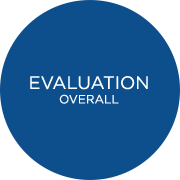
Salons
Salons are an opportunity to elevate your concerns and to discuss and debate with your peers. Reminiscent of the 18th century forums for philosophy and discourse, these safe, candid discussions are just right for delving into the most sensitive topics.
Sunday, January 27
3-4 p.m.
The Family Case for Global Giving
As younger generations bring more of a global perspective and interest to their family's philanthropy, tension can often arise - especially where the mantra "There is more than enough need here at home" has persisted for years. What obstacles must be removed and what approaches can internationally focused family members use to educate and win over their fellow trustees or even the founders?
4:30-6 p.m.
Anonymity and Recognition in Family Giving
Do named gifts such as the Giving Pledge help encourage other philanthropists to give more generously? What are the risks or trade-offs to donors and how are they handled? What are the arguments for anonymity?
Collaboration-Pluses or Minuses
Everyone talks about collaboration as an essential tool for a foundation, but partnering with others is often easier said than done. This session will focus on a number of important issues, including the true value of collaboration, dealing with pitfalls and challenges, and ensuring that each party has an equal voice.
Monday, January 28
10:30 a.m.-12 p.m.
Director Compensation
To pay or not to pay directors and trustees? That is the question private foundations continue to debate, and it's also the subject of this salon discussion. Serving on a family foundation board may impose financial challenges, particularly for younger, early-career family members or external leaders. However, voluntary service can also encourage a deeper connection to the important values of altruism and public benefit. In addition to understanding fiduciary duties and legal safeguards, family philanthropists should be familiar with the nuanced considerations on both sides of this issue.
3:30-5 p.m.
Risk Taking and Innovation
It is often said that foundations can take smart risks that others-government and business, for example-cannot, and that foundations provide society's risk capital. How true is this statement? What is really meant by "risk taking" in the context of philanthropy, and to what extent do today's foundations integrate opportunity and risk into their grantmaking? These questions, and others, will be addressed during this session.
Tuesday, January 29
9:30-11 a.m.
Working with Government
Family philanthropists are increasingly engaging with government-locally and nationally-to advance shared goals. What are the myths and realities about working with government? What perceptions do government entities have about family philanthropists? Beyond resources, what assets do family philanthropists bring to the table in a public-philanthropic relationship? These questions and others will be addressed during this discussion.
Measurement and Outcomes
Understanding the impact of giving and assessing the overall effectiveness of change theories are among the toughest challenges for foundations today. For those just embarking on this effort-and for many who have been at it for years-measuring outcomes, not just outputs, can be a daunting task. What is the right balance for using data and instinct, field experience, and passion to fuel impact?
Copyright © 2013 All rights reserved. · Privacy Policy · Terms of Use




